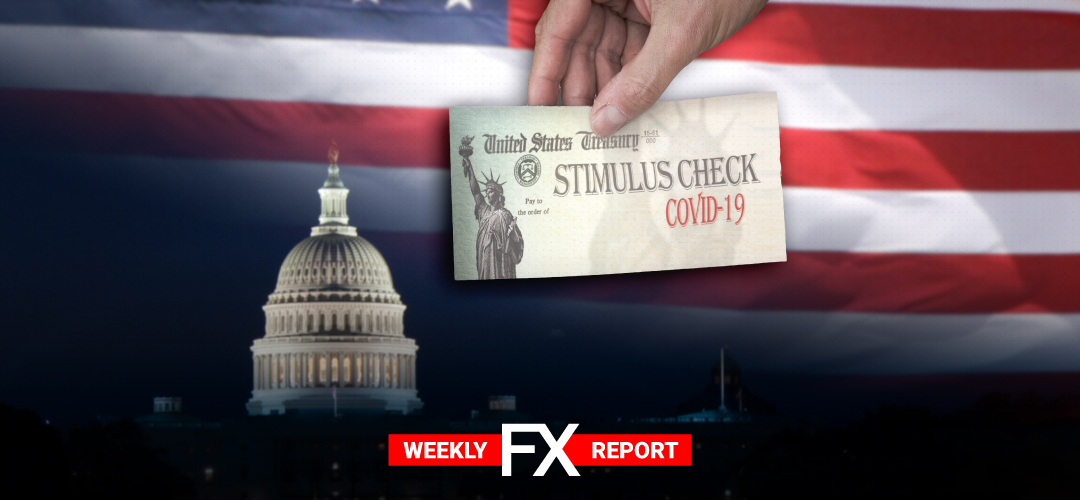News that a COVID-19 vaccine could be available by the end of the year helped offset worries about the puzzling federal relief bill.
Fears for an impasse on U.S. fiscal stimulus met fears that social restrictions would undermine the economic recovery.
Fresh restrictions to combat COVID-19 have been introduced across Europe. The U.S. Midwest’s battle over spikes in new cases threatens to derail the country’s post-pandemic economic recovery.
U.S. relief plans remain bogged down in a three-way negotiation. Investors focused on what the U.S. election outcome means for fiscal stimulus later. Fifteen days out from election day, Biden leads Trump by about 10 points in national polls.
Remarks from House Speaker Nancy Pelosi revived bets that an agreement in Washington on a fiscal package could be reached soon.
Data showed China’s economic rebound from the pandemic accelerated in the third quarter. China’s gross domestic product grew 4.9% in July-September from a year earlier. Strong gains in industrial output and an acceleration in retail sales helped GDP grow.
New Zealand Prime Minister Jacinda Ardern won re-election, delivering the biggest election victory for her party in half a century.
Strong U.S. retail sales data, increased more than expected in September, helped assuage concerns about the health of the U.S. consumer.
Markets waited for Boris Johnson to say whether the UK would quit trade talks after the Oct. 14-15 EU leaders’ summit. The British Prime Minister told businesses it was time to prepare for a no-deal Brexit.
EU rushed to say that they wanted a last-minute trade deal and that talks would continue, though not at any price. Analysts say the majority of market participants still expect the reach a deal. Hopes grow that British and European negotiators might be able to salvage post-Brexit trade talks.
START TRADINGFocus on manufacturing PMIs and Inflation Reports
Focus this week will also be on Trump and Biden’s final presidential debate. The debate will start at 9:00 p.m. ET and run for 90 minutes without commercial breaks. The six topics of discussion are: Fighting COVID-19, American Families, Race in America, Climate Change, National Security and Leadership.
- Investors now look to German PPI on Tuesday (20.10). The Producer Price Index slowed to 0.0% in August, as German inflation levels remain low. A small increase of 0.1% is forecast for September. The Reserve Bank of Australia left interest rates unchanged at its policy meeting earlier this month. The meeting minutes are going to be released on Tuesday will shed some light on the deliberations at the meeting.
- Traders will be looking for the UK Inflation Report and the Canada Inflation Report on Wednesday (16.10). UK Core CPI may probably rise to 1.3%, up from 0.9% in August.
- Meanwhile, Trump and Joe Biden will debate for a final time on Thursday (22.10). The US presidential election is just over two weeks away.
- Friday (23.10) is all about PMIs. France, Germany and Eurozone will release their Purchasing Managers’ Index Reports.
Follow this week’s economic calendar.
LQDFXperts – Puzzling federal relief bill still roils markets
Investors remain hopeful about a deal in Washington over more fiscal stimulus.
EUR/USD reversed directions last week, as the pair dropped by 1%. The dollar had its best week in three weeks on U.S. stimulus package uncertainty before the Nov. 3 election. The index was up 0.7%, for the week on investor appetite for safe-haven assets. Investor worries about rising coronavirus cases, the looming U.S. election and fading prospects of any fiscal stimulus before the election support the greenback. On a monthly basis, the dollar index is up 0.7%, its biggest rise since end-September.
GBP/USD reversed directions last week, as the pair declined by 1%. The pound ended the week 1% lower. With the UK imposing further lockdowns due to Covid-19, the economy’s downturn could be significant. Further, the UK and the EU remain far apart on a deal over Brexit, which could weigh on the British pound.
USD/JPY remains in calm waters, as the pair showed limited movement for a third successive week. The safe-haven Japanese yen had a weekly gain of 0.2% as investor appetite for safe-haven assets remains strong.
AUD/USD tumbled last week, as the pair dropped by 2.2%, its worst week since mid-September. The Aussie lost ground after investors watched weak job numbers in Australia. The economy lost 29.5 thousand jobs in September, after three successive gains. The Australian dollar continues to show volatility.
USD/CAD reversed directions last week, as the pair gained 0.50%. For the week, the loonie ended 0.7% lower. Canada and the US are both grappling with the Covid-19 virus, as the economic recovery remains tenuous in both countries. With the US election edging closer, we could see volatility from the pair.
PLEASE NOTE The information above is not investment advice.
Sources: Reuters, CNBC, BBC, The Guardian
